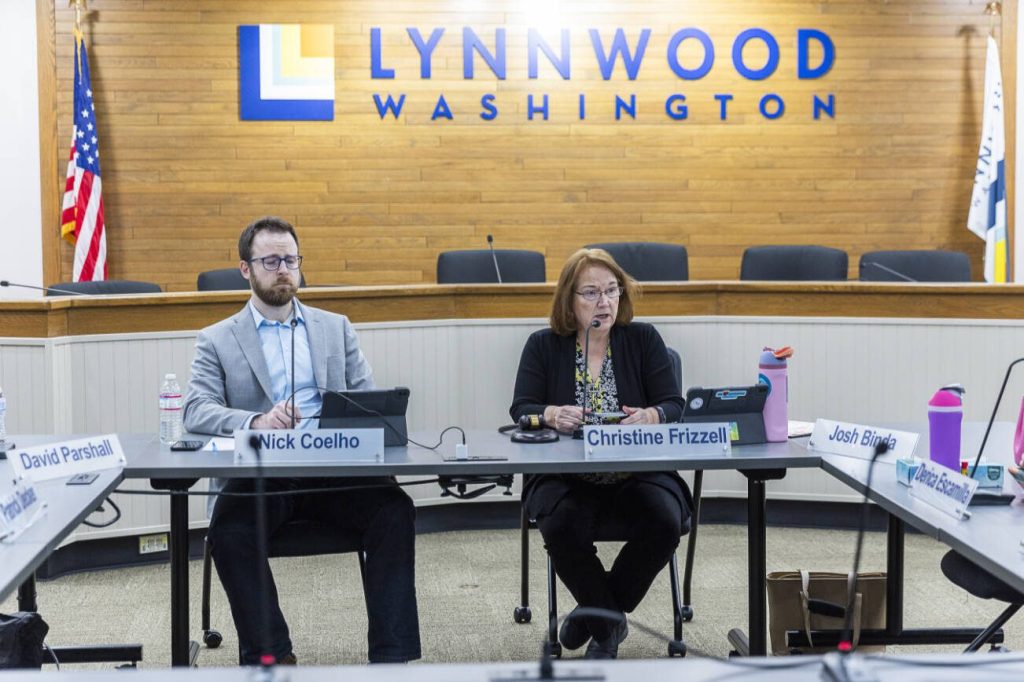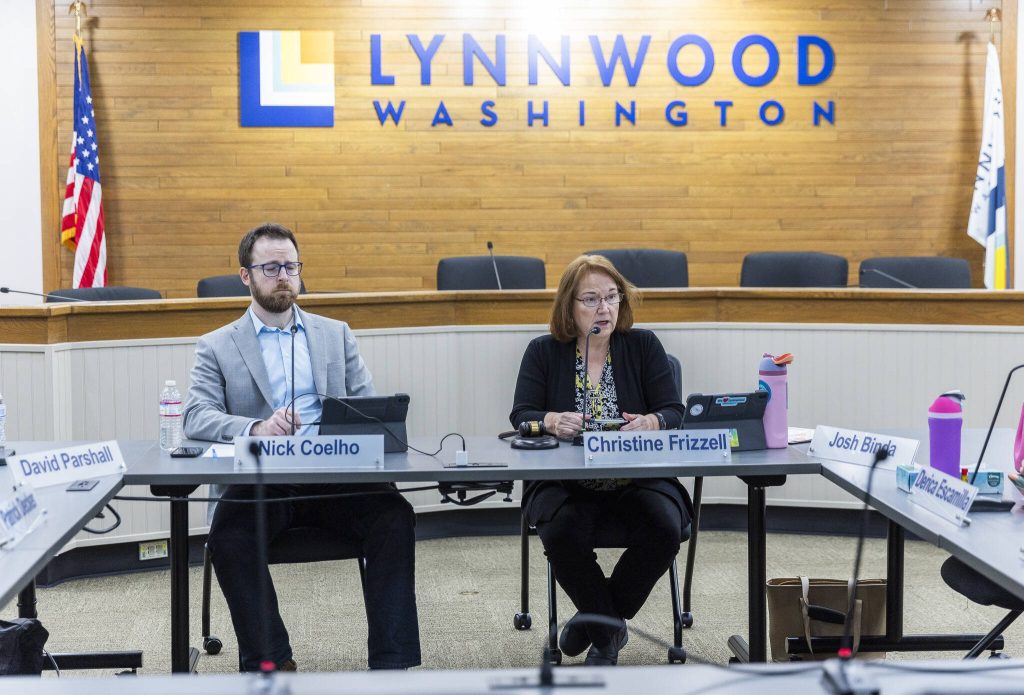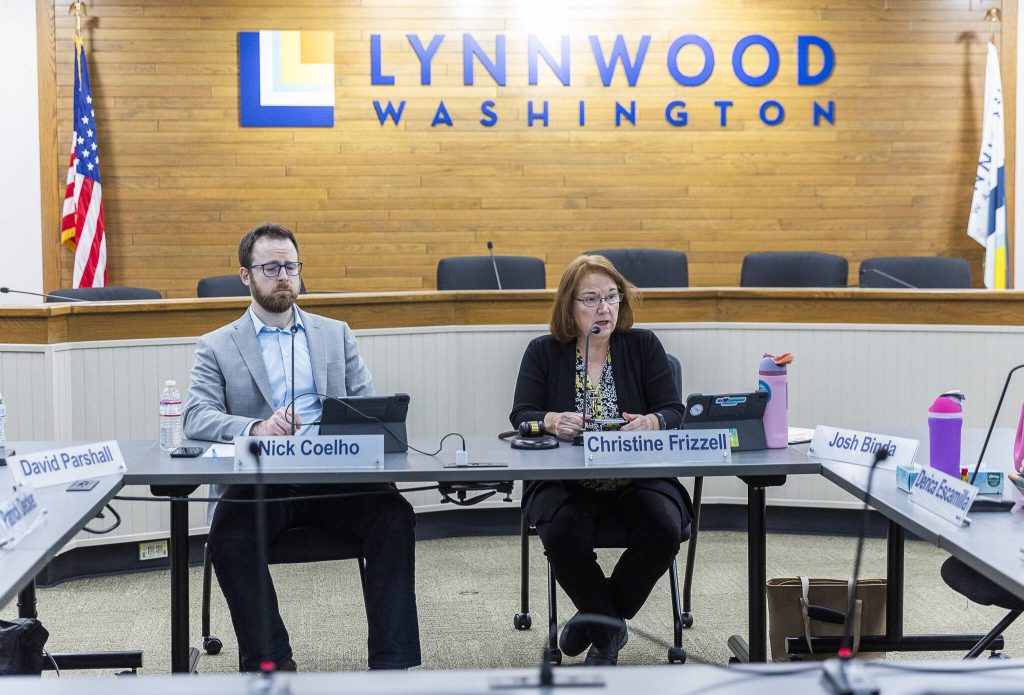Lynnwood faces ‘substantial budget shortfall,’ mayor says
Published 12:35 pm Tuesday, July 22, 2025



EVERETT — The city of Lynnwood is facing a substantial budget shortfall, Mayor Christine Frizzell announced at a City Council meeting Monday.
The city ended 2024 with a $4.2 million deficit in its end-of-year fund balance, carrying the deficit into this year, Frizzell said. In addition, financial reports through June show a $5.2 million gap between general fund revenues and expenditures.
When the city adopted its 2025-26 budget, leadership expected more growth in 2025, particularly from the light rail station that opened in August, finance director Michelle Meyer said. But the city has seen lower than expected revenue from sales tax and construction permits.
“We were really expecting the opening of light rail to have an impact on our revenues, not just sales tax, which is the biggest one, but also that continued development in the area, and that’s just not what we’re seeing,” Meyer said.
Lynnwood relies on sales tax for about 44% of its general fund revenue, Meyer said. In comparison, Edmonds relies on sales tax for about 23% of its general fund revenue, and in Everett it makes up about 24%.
“While this reliance yields strong fiscal returns during periods of economic growth and consumer confidence, it also exposes the city to significant financial volatility during economic downturns or shifts in consumer spending, which we are seeing today,” Frizzell said.
While retail sales tax revenue in Lynnwood is “holding somewhat steady,” revenue from construction and motor vehicle sales tax has declined, Meyer said.
Last year, the city added “critical services and programs,” to prepare for the city’s growth, but many of the purchases were made with one-time funding, such as COVID-19 relief funds, Frizzell said.
“As a result, the city has increasingly relied on its fund balance to cover ongoing costs, consequentially reducing our financial flexibility and resilience in the face of economic fluctuations,” she said. “These necessary investments — combined with other ongoing budgetary pressures — have placed our city’s finances on an increasingly unsustainable path.”
Revenue from red-light cameras has also been lower than expected, Frizzell said. As of the end of June, the city reached 14% of its forecasted revenue for fines and forfeitures for 2025-26, less than its target of 25%. The city had budgeted for a significant increase in red-light camera tickets based on data from a few months in 2024. Instead, the number of tickets has remained about the same, Meyer said.
On the spending side, inflation has a role in the shortfall, she said. Costs for professional services, fleet vehicles, equipment, supplies and liability insurance have increased. Costs to operate Lynnwood’s new Community Justice Center have been higher than budgeted.
In June, the Washington Supreme Court issued an order for local courts to increase caseloads for indigent criminal defense services. The order could lead to “serious increased costs” in the city’s court system, Frizzell said.
City officials started to address the $4.2 million deficit after first learning about it in April, Frizzell said. The city has already implemented a hiring freeze, with the exception of “critical positions,” she said. Twenty general fund positions are currently vacant. The city has reduced seasonal staffing, travel and training, overtime, some city programs and professional services and contracts, and eliminated non-critical purchases. The mayor and city directors will also take furlough days this year and next. Still, the city must bridge its $5.2 million funding gap.
“These efforts were helpful, however, the national environment of economic uncertainty has continued, and the turbulent national economic realities have caused a steep decline in revenues, with no real end in sight,” Frizzell said.
In December 2024, the City Council passed a 52% property tax increase as part of its 2025-26 budget, increasing property taxes by $12 per month for the average property owner. Lynnwood relies on property tax for about 10% of its general fund revenue, compared to 27% in Edmonds and 25% in Everett. The city could increase property taxes by an additional 44% without voter approval, according to budget documents.
“I’m not proposing anything necessarily, but I think it’s good to have our two ends and then find where in the middle we actually want to meet,” council President Nick Coelho said about property taxes. “We have some guardrails now, and I think that’s a great place for us to be in, but this is the time to really search deep down about why you think you’re all here, why you think you were sent here by the voters.”
On Monday, Frizzell informed city employees about the shortfall. She asked most departments to reduce their general fund operating expenses by 10% by September. She directed the police department to find 6% in cuts and the court to find 3%.
Frizzell directed Meyer to adjust the 2025-26 budget to reflect 0% growth in sales tax, development services and red-light camera revenues.
On Wednesday, the city’s finance committee will review recent financial reports in more detail. Frizzell asked the council to prepare a list of potential cuts to review at Monday’s council meeting.
“As we head into these challenging times, my priority remains on preserving public safety, code and regulatory compliance, transportation and road maintenance, and preserving front-line customer service for the public,” Frizzell said. “We need to be adaptive and balance the immediate needs with a long-term resiliency for our city.”
Jenna Peterson: 425-339-3486; jenna.peterson@heraldnet.com; X: @jennarpetersonn.







